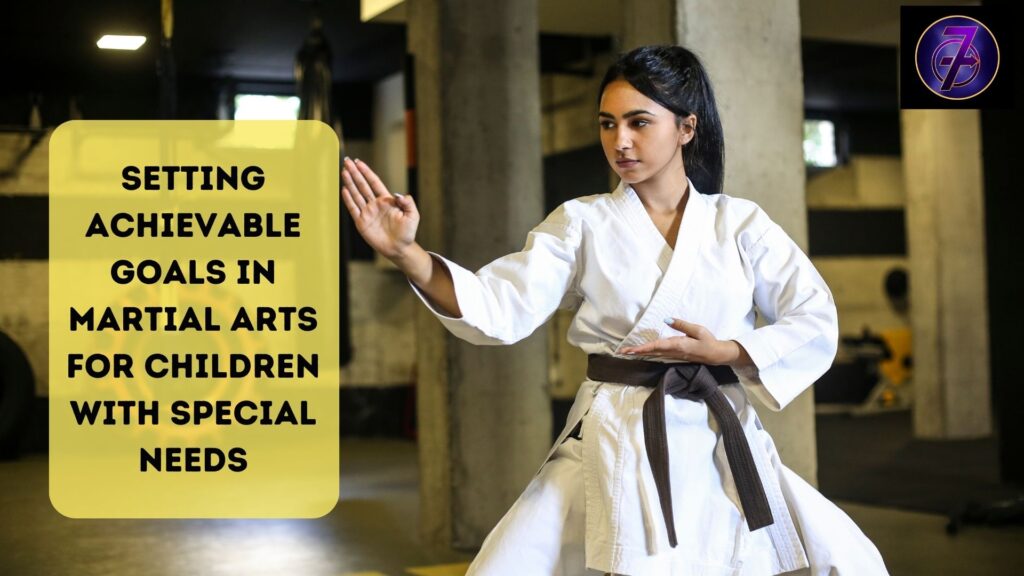
Martial arts is not just about self-defense or physical fitness. It’s a journey of self-improvement, discipline, and mindfulness. For children with special needs, this journey can be immensely beneficial, providing them with a sense of achievement, improved focus, and enhanced self-esteem. However, their goals must be achievable and appropriate to their unique needs. Here’s how you can set such goals.
1. Understand Individual Needs:
Every child is unique, and children with special needs may have specific challenges or strengths. Before setting any goals, it’s essential to understand these individual needs. A child with a physical disability might have different goals than one with a learning disability. Understand their specific strengths and areas of improvement, then cater the goals to fit them.2. Start Small:
Setting smaller, incremental goals can be more beneficial than aiming for significant, long-term objectives. For example, a child might aim to perfect a specific stance or a single move before moving on to more complex sequences.3. Celebrate Every Achievement:
For children with special needs, every milestone can be a significant achievement, no matter how small. Celebrating these can boost their confidence and motivate them to push their boundaries. Remember, it’s the journey and not just the destination that matters.4. Maintain Flexibility:
Rigid goals can often lead to disappointment. Instead, aim for Flexibility. Adjust goals based on the child’s progress, and be open to modifying them if required. This approach ensures that the child always has an achievable target to aim for.5. Integrate Therapeutic Techniques:
Martial arts training for special needs children can often be combined with therapeutic techniques, such as occupational or physical therapy. This integrated approach ensures that the child learns a skill and receives therapeutic benefits.6. Ensure Inclusion:
Children with special needs must not feel isolated or different. Integrate them with other students, with particular attention to their pace and requirements. The sense of community can significantly enhance their learning experience.7. Encourage Peer Learning:
Often, children learn best from their peers. Encourage group activities and partner drills where children can learn from and support each other. This not only fosters camaraderie but also builds social skills.8. Feedback Loop:
Always keep the communication channels open between instructors, therapists, and parents. Regular feedback can ensure that the goals remain relevant and achievable.9. Focus on the Bigger Picture:
While martial arts techniques and skills are essential, don’t lose sight of the more significant benefits – improved concentration, discipline, resilience, and confidence. Make sure the goals reflect these broader objectives.10. Stay Positive:
Lastly, always maintain a positive environment. Children should associate martial arts with fun, achievement, and positivity. Celebrate every attempt, every fall, every retry, and every smile.Conclusion:
Martial arts can be a transformative experience for children with special needs. By setting achievable goals, focusing on individual strengths, and maintaining a positive, inclusive environment, we can ensure that these children benefit immensely from this beautiful journey. Always remember, it’s about helping them find their inner warrior, one step at a time.
